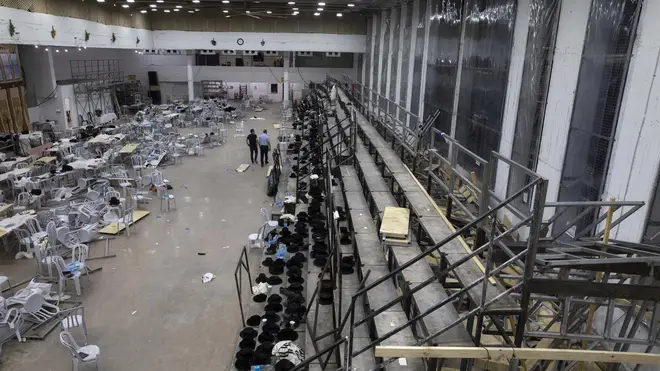
Paul Brand 7am - 10am
16 May 2021, 21:14

The incident happened in Givat Zeev, just outside Jerusalem.
Two people have died and more than 150 people have been injured after a tiered seating structure collapsed at a synagogue in the West Bank, Israeli medics have said.
The structure was packed with ultra-Orthodox worshippers and collapsed during prayers at the beginning of a major Jewish holiday.
The collapse comes weeks after 45 ultra-Orthodox Jews were killed in a stampede at a religious festival in northern Israel.
A spokesman for Israel’s Magen David Adom ambulance service said paramedics had treated more than 157 people for injuries and pronounced two people dead – a man aged in his 50s and a 12-year-old boy.

Rescue workers remained at the scene, treating the injured and taking people to hospital.
Amateur footage showed the collapse occurring during prayers on Sunday evening in Givat Zeev, just outside Jerusalem, at the beginning of the Jewish holiday of Shavuot.
The ultra-Orthodox synagogue was packed with hundreds of people.
The Israeli military said in a statement that it had dispatched medics and other search and rescue troops to assist at the scene. Army helicopters were airlifting the injured.
Israeli authorities pointed fingers at one another at the scene of the disaster.
The mayor of Givat Zeev said the building was unfinished and dangerous, and that the police had ignored previous calls to take action.

Jerusalem police chief Doron Turgeman said the disaster was a case of “negligence” and that arrests were likely.
Deddi Simhi, head of the Israel fire and rescue service, said that “this building is not finished. It doesn’t even have a permit for occupancy, and therefore let alone holding events in it”.
Television footage from the scene showed the building was incomplete, with exposed concrete and boards visible.
The fatal stampede at Mount Meron on April 29 triggered renewed criticism over the broad autonomy granted to the country’s politically powerful ultra-Orthodox minority.
Last year, many ultra-Orthodox communities flouted coronavirus safety restrictions, contributing to high outbreak rates in their communities and angering the broader secular public.